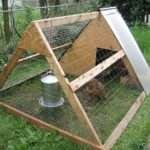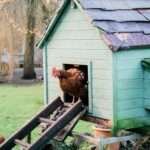As chicken keeping continues to gain popularity, innovative tools and technologies are becoming increasingly available to simplify the tasks involved in caring for our feathered friends. One such advancement are automatic chicken coop doors. These are devices designed to provide convenience and security for both chicken keepers and their flocks. In this comprehensive guide, we will explore the benefits and drawbacks of using an automatic coop door, helping you make an informed decision on whether this investment is right for your chicken keeping setup.
The Value of Ensuring the Coop is Shut Every Night:
Keeping chickens safe and secure is a primary concern for all chicken keepers. One of the most critical aspects of safeguarding your flock is ensuring the coop is securely closed every night. As nocturnal predators, such as raccoons, foxes, and owls, pose significant threats to chickens, closing the coop prevents these predators from gaining access to your chickens while they sleep. Additionally, closing the coop at night helps protect chickens from potential risks like extreme weather conditions and exposure to diseases carried by wild birds.
The Advantages of Using an Automatic Coop Door:
Automatic coop doors offer a range of advantages that make chicken keeping more convenient and efficient. Some of the key benefits include:
1. Convenience and Time-Saving Benefits: Automatic coop doors eliminate the need for manual opening and closing of the coop, saving you time and effort, especially during early mornings and late evenings. With automatic functionality, you can set specific opening and closing times based on the sunrise and sunset, allowing your chickens to have a consistent daily routine.
2. Ensuring Consistent Opening and Closing Times: Consistency in opening and closing times is crucial for chicken health and behavior. When chickens have a predictable schedule, they feel secure and are less stressed, which can positively impact their overall well-being and egg production.
3. Increased Security against Predators: Automatic coop doors are equipped with sensors that detect daylight and darkness. They can be programmed to close at dusk, protecting chickens from nocturnal predators that hunt during the night. Additionally, some automatic doors have built-in safety features that sense obstructions, preventing accidental injury to chickens.
4. Adapting to Changing Daylight Hours: As the seasons change, daylight hours fluctuate. Automatic coop doors can automatically adjust their opening and closing times based on these changing daylight hours, ensuring your chickens are safely inside the coop before darkness falls.
5. Reducing Human Intervention and Disturbances: Automatic coop doors can be particularly beneficial when you are away from home or have irregular schedules. They eliminate the need for constant human intervention in the chicken coop, reducing disturbances to the flock and providing peace of mind for chicken keepers.
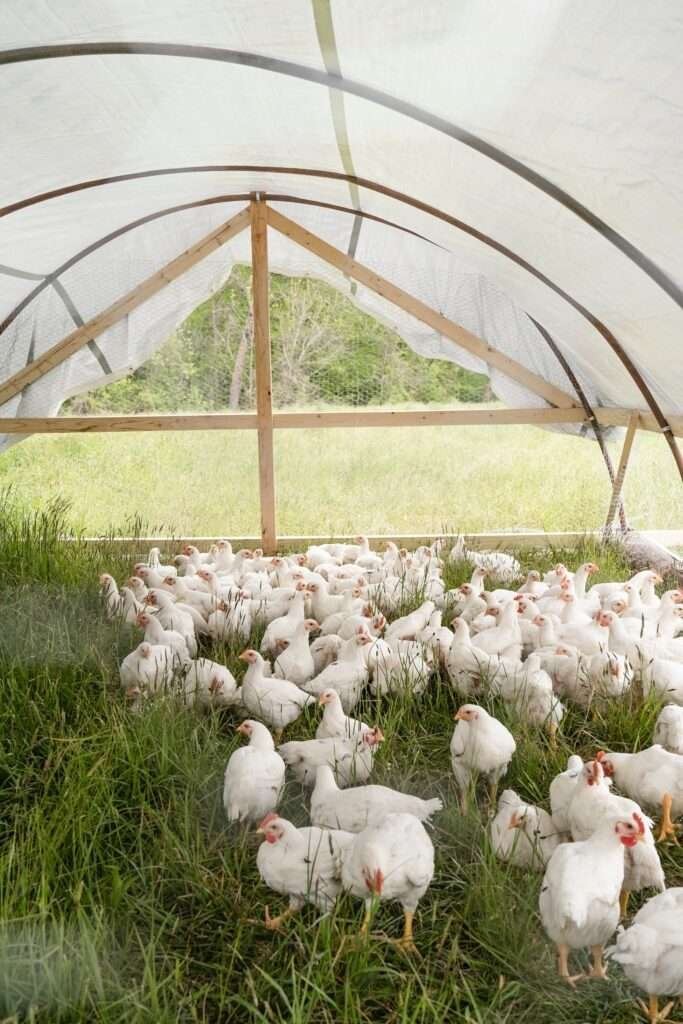
Common Varieties of Automatic Coop Doors on the Market:
Automatic coop doors come in various types and designs to cater to the diverse needs of chicken keepers. Some of the common varieties available on the market include:
1. Electric Automatic Coop Doors: Electric automatic coop doors are powered by electricity and typically require a power source within close proximity to the coop. They can be connected to a standard electrical outlet or run on a battery that needs periodic recharging. These doors usually have a timer or light sensor to set specific opening and closing times, providing convenience and security for your chickens.
2. Solar-Powered Automatic Coop Doors: For chicken keepers seeking eco-friendly options, solar-powered automatic coop doors are an excellent choice. These doors are equipped with solar panels that harness sunlight to charge the built-in batteries, powering the door’s mechanism. Solar-powered doors are particularly advantageous for coops located in areas with ample sunlight exposure.
3. Battery-Operated Automatic Coop Doors: Battery-operated automatic coop doors are independent of electrical connections and solar panels. They are powered by rechargeable batteries that need periodic replacement or recharging. These doors are portable and can be easily installed in various coop designs.
4. Programmable Timers and Sensors: Many automatic coop doors come with programmable timers and light sensors. The timers allow you to set specific opening and closing times, while the light sensors enable the door to respond to changing daylight conditions, ensuring the door opens and closes at appropriate times.
5. Sliding and Swing Door Mechanisms: Automatic coop doors are available in various designs, including sliding and swing door mechanisms. Sliding doors move horizontally to open and close, while swing doors pivot on hinges. The choice between sliding and swing doors depends on the coop’s layout and the preferences of the chicken keeper.
6. Integration with Smart Home Systems: For tech-savvy chicken keepers, some automatic coop doors can be integrated with smart home systems. This allows you to control the door remotely through your smartphone or other smart devices, providing flexibility and ease of use.
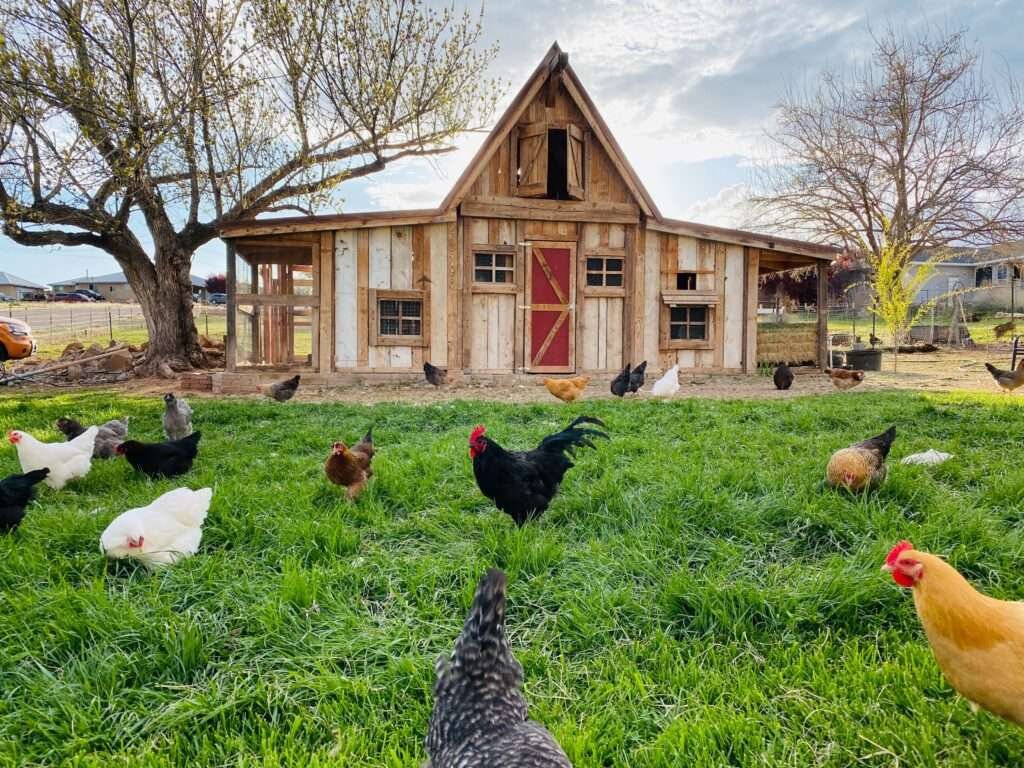
Understanding the Drawbacks of Automatic Coop Doors:
While automatic coop doors offer numerous benefits, they also come with certain drawbacks that chicken keepers should consider before making a decision:
1. Initial Cost and Investment: The upfront cost of purchasing an automatic coop door can be higher than traditional manual options. However, many chicken keepers view it as a long-term investment in the security and convenience of their flock.
2. Reliability and Maintenance Concerns: Automatic coop doors rely on electronic components, motors, and sensors, which may be susceptible to technical malfunctions or wear over time. Regular maintenance and occasional troubleshooting may be necessary to ensure their proper functioning.
3. Limited Manual Control and Monitoring: With automatic doors, the opening and closing times are pre-programmed, leaving limited room for immediate manual adjustments. In situations where you need to make last-minute changes, such as extending coop access time during special circumstances, manual doors offer more flexibility.
4. Vulnerability to Power Outages and Technical Malfunctions: Electric and battery-operated doors are vulnerable to power outages or battery failures. If not properly prepared, unexpected power interruptions could leave the coop door open, potentially exposing the flock to predators.
5. Compatibility and Fit with Different Coop Designs: Automatic coop doors come in various sizes and designs, and it is essential to ensure the chosen door fits your specific coop dimensions. Some coops may require modification or custom adaptations to accommodate the selected automatic door.
The Value of Visually Checking Your Chickens Daily:
While automatic coop doors offer convenience and security, they should not replace the daily practice of visually checking your chickens. Regular visual checks play a vital role in ensuring the health, well-being, and happiness of your flock. Some of the key reasons for daily visual checks include:
1. Monitoring Chicken Health and Behavior: By observing your chickens daily, you can identify any signs of illness, injury, or abnormal behavior. Early detection of health issues allows for timely intervention and reduces the risk of potential health crises in your flock.
2. Detecting Early Signs of Illness or Injury: Chickens are adept at hiding signs of illness or vulnerability. A daily visual inspection allows you to notice subtle changes in behavior, posture, or appearance that may indicate health problems or injuries.
3. Ensuring Adequate Food and Water Access: Daily checks ensure that your chickens have access to sufficient food and water. You can monitor feed levels and water containers, making adjustments as needed to ensure your flock is well-nourished.
4. Building a Stronger Bond with Your Flock: Interacting with your chickens daily fosters a deeper connection and trust between you and your flock. Regular contact can help your chickens become more comfortable around you, reducing stress when you need to handle them for health checks or other reasons.
5. Identifying Potential Coop and Environmental Issues: Daily visual checks allow you to assess the coop’s condition and spot any potential hazards, such as sharp edges or loose wires. You can also inspect the environment for cleanliness and make any necessary adjustments to ensure your chickens are in a safe and comfortable space.

Striking the Right Balance: Combining Automatic Coop Doors and Daily Visual Checks:
To optimize chicken care, it is essential to find a balance between the automation provided by automatic coop doors and hands-on daily interaction with your flock. Integrating both practices into your chicken keeping routine can lead to the best possible outcomes for your chickens. Here are some tips for achieving this balance:
1. Integrating Automatic Coop Doors into Your Chicken Keeping Routine: Set up your automatic coop door according to your chickens’ natural schedule. Program the door to open at sunrise and close at dusk to provide them with consistent daily routines. This ensures they have ample time for foraging during daylight hours and are safely secured in the coop at night.
2. Ensuring Regular Daily Checks Despite Automation: Even with an automatic coop door, make it a habit to visit your chickens daily. Observe their behavior, monitor their health, and provide any necessary care or attention. Use this time to interact with your flock and maintain a strong bond.
3. The Importance of Hands-On Interaction with Your Flock: Engage with your chickens beyond the daily visual checks. Spend quality time with them, offer treats, and provide opportunities for dust bathing and foraging. Regular handling and socialization contribute to the well-being and tameness of your chickens.
Factors to Consider Before Investing in an Automatic Coop Door:
Before making a decision on purchasing an automatic coop door, consider the following factors:
1. Size and Type of Coop: Ensure the automatic coop door you choose is compatible with the size and design of your coop. Measure the opening and consider any potential modifications needed for proper installation.
2. Power Source Availability and Reliability: Consider the availability of power sources in your coop’s location. If you opt for a solar-powered door, assess the amount of sunlight your coop receives throughout the day.
3. Budget and Long-Term Cost Considerations: Evaluate the initial cost of the automatic coop door and factor in potential maintenance expenses. Consider the long-term benefits and savings the door will provide.
4. Compatibility with Chicken Keeping Goals and Lifestyle: Think about how an automatic coop door aligns with your chicken keeping goals and daily routine. Assess whether the convenience it offers justifies the investment for your specific needs.
5. Quality and Durability of the Chosen Automatic Coop Door: Research different brands and models of automatic coop doors to ensure you select a high-quality and durable option. Read reviews and seek recommendations from experienced chicken keepers to make an informed choice.
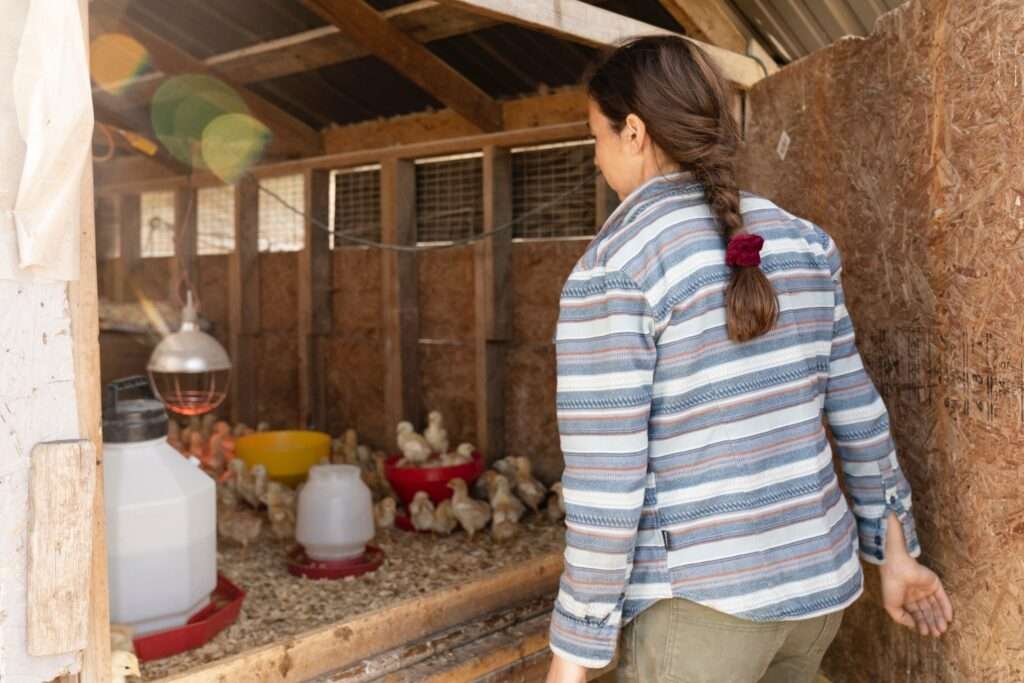
Addressing Common Concerns and Troubleshooting Automatic Coop Doors:
If you decide to invest in an automatic coop door, there may be some initial adjustments and challenges. Here are some common concerns and tips for troubleshooting:
1. Training Chickens to Use the Automatic Door: Chickens are intelligent creatures, and with patience and training, they can quickly learn to use the automatic door. Use treats to entice them to go through the door and reinforce positive behavior.
2. Preventing Trapping and Injuries in Closing Doors: Ensure that your chickens are safely inside the coop before the door closes. Choose a door design with built-in safety features to prevent trapping and injury.
3. Ensuring Secure Locking Mechanisms: Check that the automatic coop door has secure locking mechanisms to prevent unauthorized entry by predators or curious wildlife.
4. Maintaining and Cleaning Automatic Chicken Coop Doors: Regularly inspect and clean the automatic coop door to ensure proper functioning. Lubricate moving parts and remove any debris or obstructions that may hinder its operation.
Automatic Chicken Coop Doors
Automatic chicken coop doors offer undeniable benefits in terms of convenience and enhanced security for your flock. Their ability to automate daily routines and protect chickens from nocturnal predators is invaluable for many chicken keepers. However, it is essential to balance automation with hands-on care and daily visual checks. By investing in an automatic coop door and consistently interacting with your flock, you can create a harmonious chicken keeping experience that ensures the health, happiness, and safety of your beloved chickens

